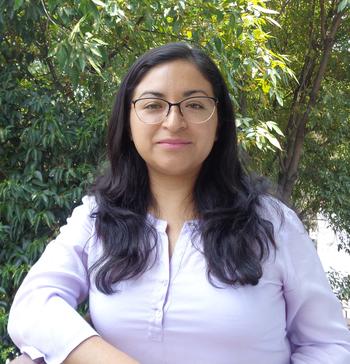Marina Téllez González

International Research Training Group 'Temporalities of Future in Latin America'
Dynamics of Aspiration and Anticipation
PhD Candidate
Project: “The Habits of Power. Transfigured Interests in the Foundations of Nunneries in Spanish America (16th Century)”
Proyect: “The Habits of Power. Transfigured Interests in the Foundations of Nunneries in Spanish America (16th Century)”
The research aim is explained the beginnings of monastic life in American territories of the Spanish Monarchy, paying special attention at the role of the founding women.
The main topic of the thesis is the discussion on the several projects and solutions proposed in relation on the protection and education of women during the fist half of the Sixteenth Century in Latin America, among those, the main winner and hoarder at the end of the century, were Convents of Closure. In first place, because they represented the hierarchical idea that was wished to build in New Spain and Peru's society. In second place, because native and mestizas population were relegated to places of service and assistance at those Convents.
The appearance of female convents was part of transformation process of the royal policy regarding the Spanish-American territories administration. According to this, nuns and their corporation helped to reinforce the strength of the Diocesan Church, as well as, to recognize the descendants of conquerors as exclusive collaborators on the pacification of their territories in America. Also and above all, the foundation of female Convents responded to locals needs of Spanish and Creole women, who seeing themselves helpless and without possibility of returning Europe, they chosen group themselves under protection of Bishop or some religious order, is this way they could provide themselves a safe life, keeping them out from a dangerous, uncertain or dishonorable future.
The thesis studies six particular foundations: La Concepción and Santa Clara in Mexico City, Santa Catalina in Puebla de Los Angeles, Santa Clara in La Española, La Encarnación in Lima and finally Santa Clara in Cusco.


